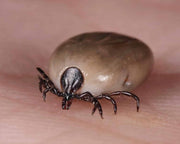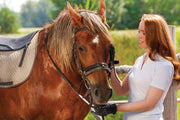How rabbits handled may affect pets' welfare

How rabbits are handled by their owners could form a key part of the pets' wellbeing, new research has suggested.
BBC News reports that being a "prey species", rabbits usually do not want to be picked up. The study, published in the Journal of Applied Animal Welfare Science, surveyed rabbit owners in the UK and Ireland on different handling methods. Many held their pet close to their body, while "scruffing" - holding a rabbit by the scruff of its neck - was a potential welfare issue. It is also believed that rabbits associated scruffing with being grabbed by a predator. Carrying a rabbit on its back, another of the methods studied, can cause tonic immobility, a potentially harmful trance-like state. In all the methods examined, the rabbit's rear was supported to avoid the risk of damaging the animals' backs. After dogs and cats, rabbits are the third most common mammalian pet in the UK, numbering up to 1.1 million, according to the research. Almost 3,000 people from Scotland, England, Wales, Northern Ireland and the Republic of Ireland took part in the survey. The majority of respondents to the study, called 'A survey of common rabbit handling methods and reasons for their use', were women. There are occasions when the pets have to be handled, and it is usually done when giving them health checks. The researchers said: "Handling of rabbits is likely to have a direct impact on rabbit welfare. "Negative impacts on rabbits can be minimised by handling them in an appropriate way, including avoiding methods with a high potential to impede welfare, such as tonic immobility and scruffing. "Additional research is encouraged to explore the experience of rabbits during handling and to identify the methods that may make handling easier for the handler and reduce any perceived and actual negative experience for the rabbit." (Story source: BBC News)





